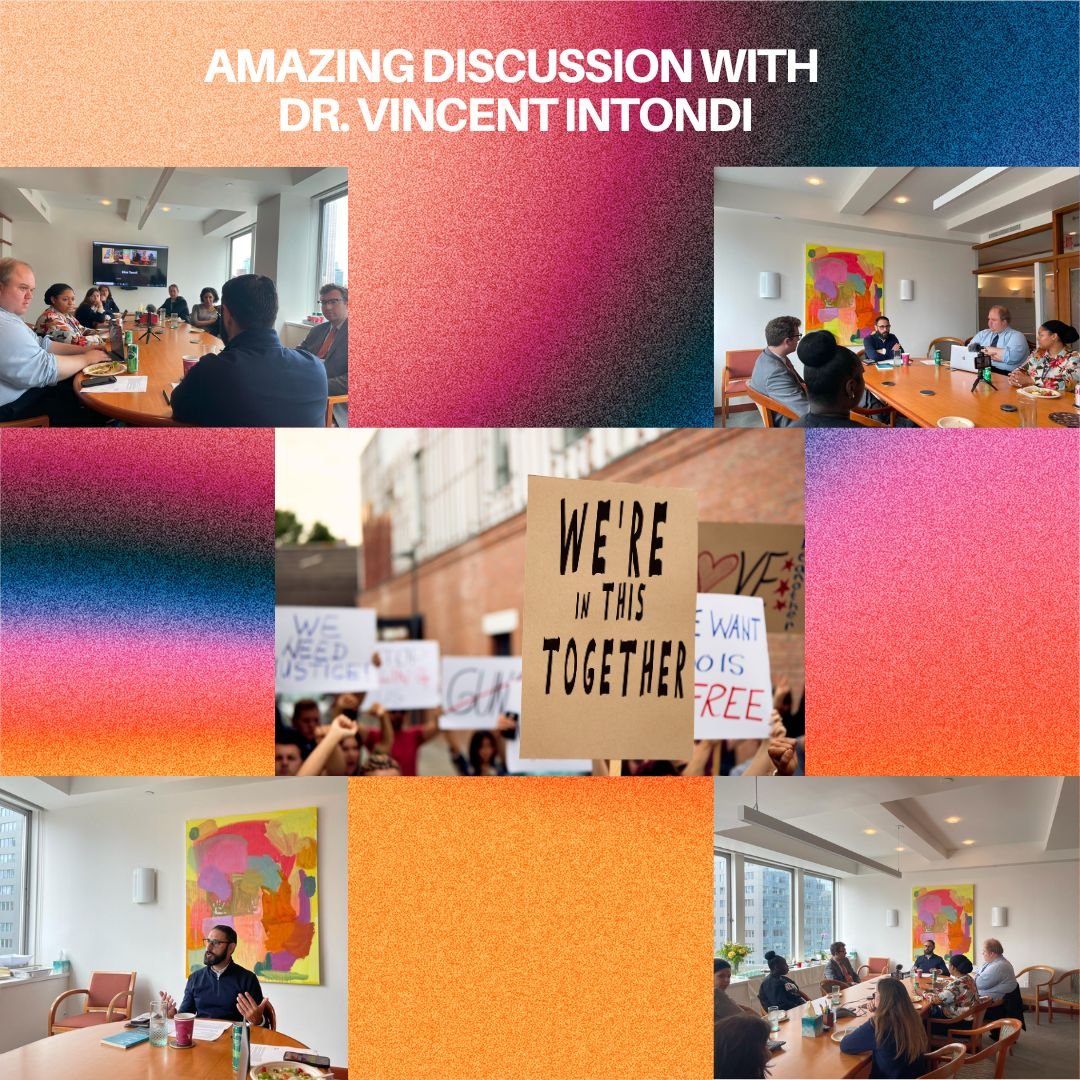Discussion on Saving the World from Nuclear War: The June 12th 1982 Disarmament Rally and Beyond
Report by Ryan Rowe
Dr. Vincent Intondi, the Director of the Institute for Race, Justice, and Civic Engagement at Montgomery College and RTT Adviser, spoke to RTT activists about his latest book entitled Saving the World from Nuclear War: The June 12th, 1982 Disarmament Rally and Beyond at The Prospect Hill Foundation last Thursday. NAPF President Dr. Ivana Hughes and United Nations Liaison of ICAN, Seth Shelden, were also in attendance.
Intondi’s book provides an examination of the June 12, 1982 historic March and Rally for Nuclear Disarmament and the teamwork and trials that led to its coordination. Intondi explains that the march and rally were in response to the Reagan administration’s ever-expanding military spending, particularly on nuclear weapons testing and the Star Wars Campaign. The march also occurred around the same time as the Special Session on Disarmament (SSOD II) at the United Nations. Bringing the protest to fruition required the collaboration of a pantheon of coalitions ranging from civil rights to lgbtqi groups. The June 12th rally remains one of the largest organized demonstrations in the world, amassing an estimated one million participants in New York’s Central Park.
Dr. Intondi gave us a glimpse into his research process for this book. He noticed that there was a lack of visibility of several demographics. In sharing their stories, he addressed the myth of disarmament being a “white, middle-class issue” and provided an in-depth look at the extensive contributions of people of color, gender minorities, and more to the disarmament field in the 1980s and beyond.
His statements on the typecasting of historical activists were particularly enlightening. Archival research and interviews revealed the intersectionality of individuals, such as playwright Lorraine Hansberry, who was widely recognized for her work in the arts community and for pursuing civil rights. She was also involved in disarmament advocacy , but this aspect of her life’s work is too often overshadowed because of compartmentalization.
Intondi’s book highlighted the importance of the arts in the nuclear field as well. The organizer of the march placed poets at every street corner to engage marchers with information and inspiration. Celebrity entertainers also aided in raising funds and awareness of the march through concerts and live shows.
Many thanks to Dr. Intondi for speaking with us and to The Prospect Hill Foundation for hosting this informative lecture and Q&A session.

